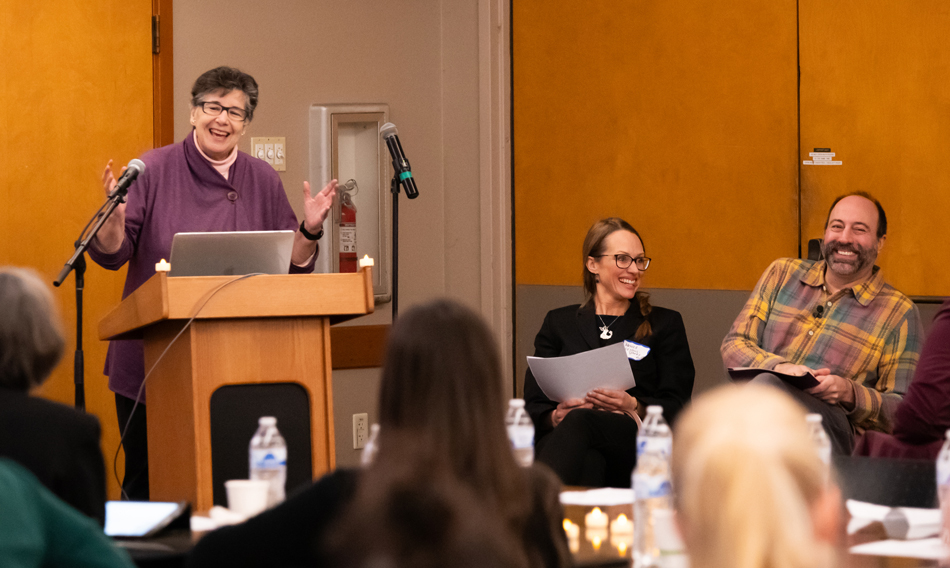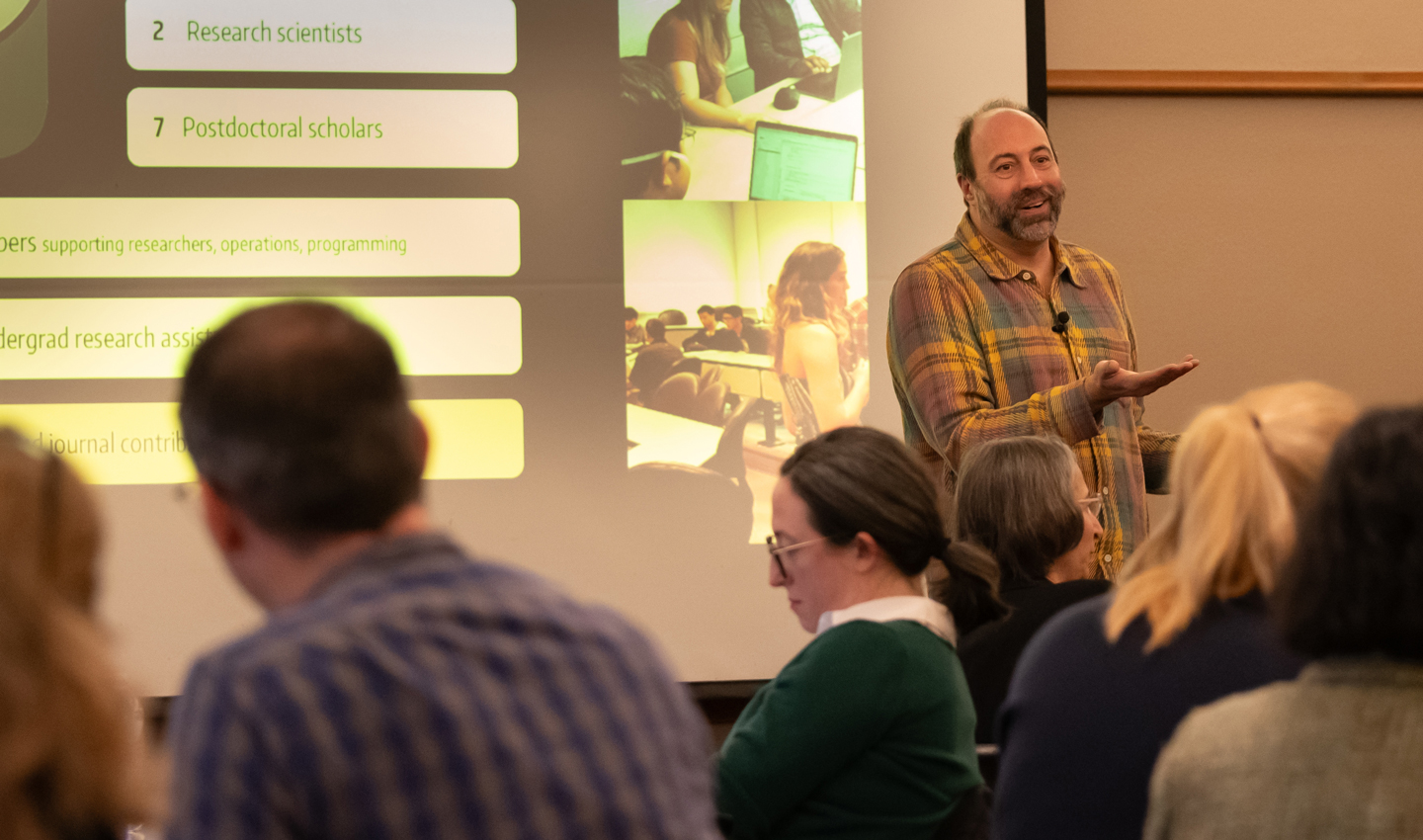Researchers from the Information School joined scholars from across all three University of Washington campuses and various disciplines recently to celebrate the inaugural convening of Society + Technology.
The initiative is dedicated to advancing research, teaching and learning centered on the social, societal and justice dimensions of technology. The Jan. 9 event included rapid talks from UW researchers and a panel discussion moderated by iSchool’s Jason Young.
Born from the 2022 Society + Technology Task Force formed by the UW president and provost, the program aims to create opportunities for cross-campus and cross-disciplinary collaboration that will help make the UW a leading resource for policymakers as they deal with the effects of rapid technological change.
In an age of smart fridges, trackable dog collars, heart-rate-monitoring rings and more, technology is more integrated into daily life than ever. The initiative aims to put society at the forefront of the conversation about technology.

Monika Sengul-Jones, director of strategy and operations for Society + Technology, is working to strengthen the intellectual community and foster conditions for collaboration.
“Social concerns around technology are pretty urgent,” Sengul-Jones said. “This is a shared concern across disciplines and among students, staff, and faculty. Not to mention, the pace of change can feel faster than our human scale is capable of grappling with. By coming together, we can strengthen ourselves, be more visible, share what we know, and share resources.”
UW President Ana Mari Cauce and Provost Tricia Serio opened the event with remarks on the importance of integrating society and technology.
“What we are making clear today is that we really believe that this is an area where the University of Washington has the brainpower, the people power, to really be a leader,” Cauce said. “We want to come together and establish ourselves as a leader in this area that's going to be more and more and more important in the future.”
For Cauce, seeing this initiative come together has been rewarding, especially in fostering collaboration across UW’s three campuses.
“We take our public mission very seriously, and this is a perfect example of how we take that very seriously,” Cauce said.
The initiative features campus partners and researchers, including iSchool affiliates.
Ryan Calo (pictured at top), a professor in the iSchool and the School of Law, chaired the task force that produced the initial report on strengthening UW’s work around society and technology. He emceed the event and introduced the rapid lecture speakers. Among them was Aylin Caliskan, assistant professor at the iSchool and co-director of the Tech Policy Lab, who shared her research on the impact of AI and its tech policy implications.

“Machines are replicating all implicit biases that have been documented in society related to partnership, associations and norms,” Caliskan said, “as well as social group biases that are dynamic, intersectional and problematic related to gender, sexuality, social class, nationality, race, ability, religion and any other impactful social construct or concept that you can imagine.”
Caliskan found that when AI generates images of a person living in poverty or a terrorist, it depicts individuals of certain ethnicities. In general searches the models also preferred to create images of white men over Black men.
“My research agenda focuses on aligning AI with ethical principles so that we can raise awareness, reduce harm and try to benefit everyone, because that is not what is happening at the moment,” Caliskan said.
Emma Spiro, an iSchool associate professor and director and co-founder of the Center for an Informed Public, gave a talk about the CIP’s research on online rumors during crisis events.
The CIP is home to over 20 faculty affiliates, postdoctoral scholars, research scientists, dozens of faculty and staff, and eight full-time team members who work in the local community as well as internationally.
“We focus on understanding how information flows through socio-technical systems,” Spiro said. “We want to understand how that information translates into values, actions and decision making, and we want to understand how we can intervene and address challenges [in order to support an informed public].”
Spiro also highlighted that fostering new collaborations is a central goal of the CIP, particularly by leveraging its strong team of students.
“Students are the heart of our center, and we couldn't do what we do without them,” Spiro said.
Other speakers included professors and researchers from UW Seattle’s Communications department, Computer Science and the School of Medicine. Presentations also came from UW Bothell professors in media and communication, as well as science and technology studies. These lightning talks from affiliates showcased the interdisciplinary collaboration that the initiative aims to foster.
The Society + Technology initiative hosts programs such as the podcast Conversations with Society + Technology, a reading group that meets the first Monday of every month, and pop-up working groups and salons.
François Baneyx, an event panelist and director of CoMotion, emphasized the importance of collaboration across disciplines to ensure continued support for the work in the realm of society and technology.
“Convening is critical,” Baneyx said. “I think learning our language, learning what we do and how we do things, is also critical.”
